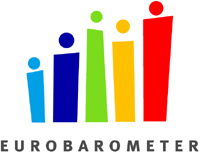
European
Nuclear Society
e-news
Issue 10 Autumn 2005
http://www.euronuclear.org/e-news/e-news-10/presidents-contribution.htm


The European Commission has published this summer the results of an opinion poll carried out in February-March 2005, among 24708 citizens in the 25 Member States of the union, and devoted to radioactive waste. This “EUROBAROMETER 277” is well worth reading in details, but I have chosen not to focus on the waste issue, but rather on the general picture of the public acceptance of nuclear power in EU25.
Pollsters do not read into the souls of the people they interview, they can only tick the bullets of their questionnaire. Polls vary from week to week (witness many recent elections across Europe) and the context of a given poll is far from irrelevant: had the EUROBAROMETER been about energy security or oil prices, rather than radioactive waste, many answers to the same questions might have been significantly different.
In that respect, the poor overall score of nuclear power in the Union (37% in favour, 55 against and 8% undecided) may not be very significant, all the more since there was no weighing by the respective population of each state. Still, the results are interesting in relative if not in absolute terms.
The first feature to emerge is the wide heterogeneity of the Member States where nuclear power is concerned, from a hefty 65% support in Hungary to an almost incredibly low 8% in Austria, just across the inner border of the old Habsburg Empire.
10 countries, Hungary, Sweden, the Czech Republic, Lithuania, Finland, Slovakia, France, the Netherlands, Belgium and the United Kingdom, have more nuclear supporters than opponents. Not too surprisingly, all these 10 countries are among the 13 countries which operate nuclear power plants in EU25. On the other hand, Spain, where nuclear power supplies 23% of the electricity, has only 16% of the voices in favour.
There is more to this heterogeneity than meets the eye: one could argue that in Canada, for instance, British Columbia (all hydro) and Manitoba (all fossil) have less enthusiasm for nuclear power than Ontario does. But I do not believe that the citizens of British Columbia want to kill nuclear power in Ontario…

There are other lessons for us, in ENS, to be drawn from this EUROBAROMETER.
Andrew Teller found an interesting correlation (Figure) between the level of information about nuclear power and its degree of acceptance in a given country. We still have a lot to do to disseminate accurate and balanced information to the European public.
All across the Union, the typical supporter of nuclear power can be schematized as male, middle aged, educated and right wing. I do not believe we can do much about political preferences, but we definitely need to address better the young and the women. ENS must do more to support YGN and WIN.
More than 60% of the people interviewed agreed with the following statements :
The use of nuclear energy enables European countries to diversify their energy sources.
We could reduce our dependence on oil if we use more nuclear energy.
An advantage of nuclear power is that it produces less greenhouse gas emissions than the other energy sources such as oil and coal.
Let me admit that I, myself, am not so convinced by statement #2, because oil is mostly used for transportation. Until we produce hydrogen by nuclear reactors, our impact on transports will remain quite limited, limited indeed to electric railroads. Vive le TGV! I would also have added natural gas to the end of statement #3, but then, I am sometimes politically incorrect.
But the fact that 62% of the polled agreed wit statement #3 is very important, especially so because a previous EUROBAROMETER (November 2001) had very different findings: 47% of the EU15 citizens interviewed in 2001 thought that “nuclear power contributes significantly to climate change and global warming”, while a mere 28% knew the right answer. This growth in public awareness over the last 4 years allows me to end this editorial on a very optimistic note. We witness almost everywhere in the world some kind of nuclear upturn. I am confident that Europe shall not be left behind.
![]()
© European Nuclear Society, 2005